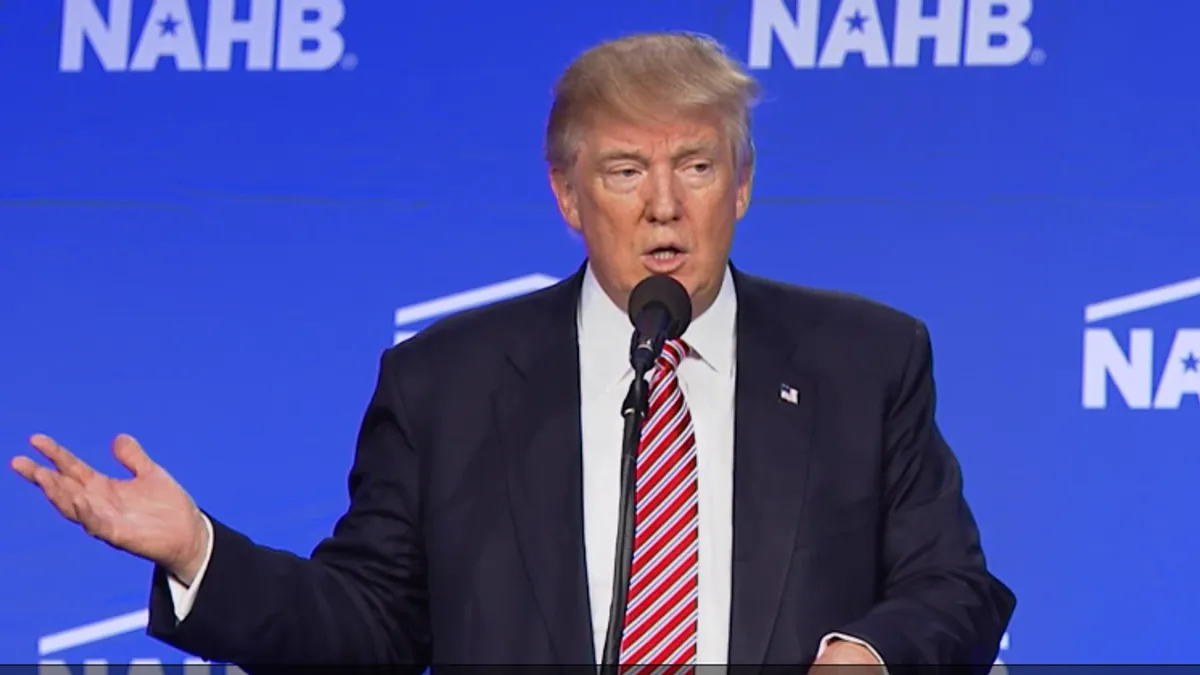Dive Brief:
- President Trump yesterday signed an executive order directing the U.S. Environmental Protection Agency to reconsider the controversial Waters of the United States (WOTUS) rule, which clarified federal jurisdiction over waterways and wetlands under the Clean Water Act of 1972.
- The rule is opposed by farming interests, mining companies and utilities, which argue it extends federal authority too far over small bodies of water formerly left to state jurisdiction. Trump had made repeal of the rule a central plank of his environmental platform.
- WOTUS is currently under review in the Court of Appeals for the 6th Circuit, meaning the agency review will have little immediate impact. Trump is widely expected to roll out more orders this week, including one to review and repeal the Clean Power Plan.
Dive Insight:
President Trump gave an address to both houses of Congress last night that surprised many for being less bombastic than usual. But a change in tone is not expected to alter his course on signature campaign promises, central among them the dismantling of Obama administration environmental programs.
Yesterday, Trump began issuing a set of executive orders to roll back the EPA's authority.
The first targeted the WOTUS rule, which sought to clarify which smaller waterways and wetlands should be regulated under the Clean Water Act because they feed into larger bodies already covered by the law. Until then, the definition had been left to state authorities to determine.
Trump, in signing the executive order, called the rule "one of the worst examples of federal regulation, and it has truly run amok, and is one of the rules most strongly opposed by farmers, ranchers and agricultural workers all across our land."
Utility companies opposed the regulation from the outset, concerned that enhanced federal jurisdiction could complicate siting for energy projects.
In 2014, when the rule was proposed, the Edison Electric Institute said it would "prolong the transition to a cleaner fleet in part because of new and uncertain permitting requirements."
The National Rural Electric Cooperative Association (NRECA) also opposed the rule and signaled its support for the Presidents move. CEO Jim Matheson issued a statement saying WOTUS "would increase costs for electric co-ops to build and maintain critical infrastructure without meaningful environmental benefits."
"WOTUS needs to be defined in a sensible way that provides clarity without saddling American businesses with huge regulatory burdens and costs," Matheson said.
Reconsideration of the rule, Vox notes, is a process that could take years, as the agency will still need to determine which waterways must be protected. And any impact on the power sector is expected to be minimal, as the rule was put on hold by a federal appeals court in 2015 until ligation concludes.
The White House released a budget document yesterday as well, proposing to cut EPA funding by about 25% and reduce the agency's workforce by 20%. The administration is also expected to issue executive orders to cancel the Clean Power Plan and rules governing coal leasing and production.














